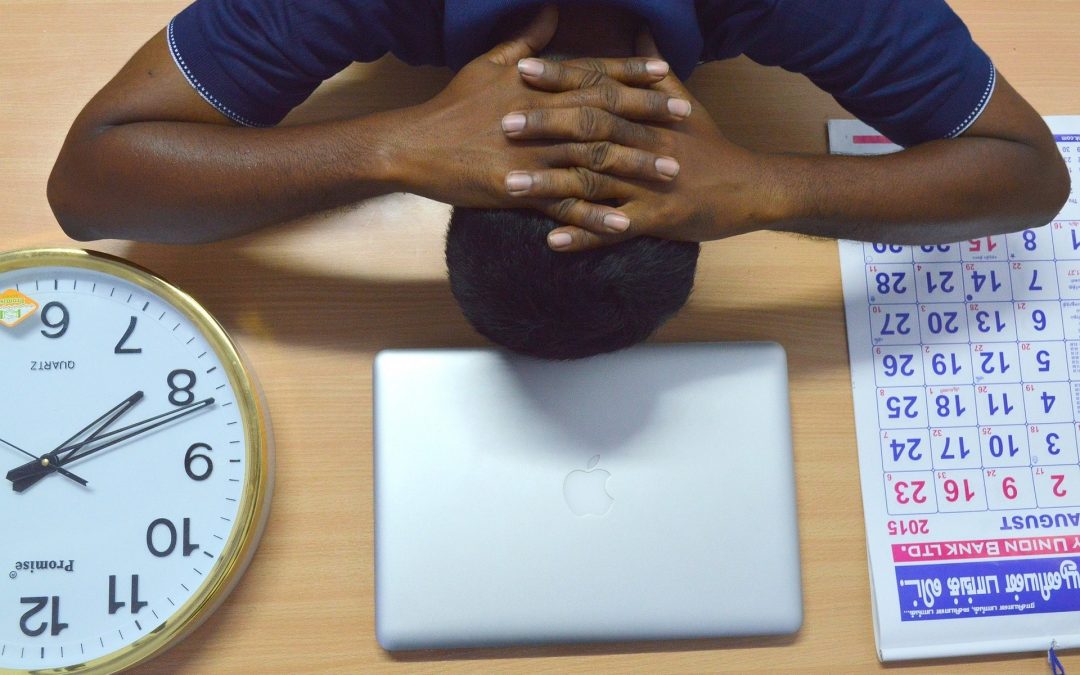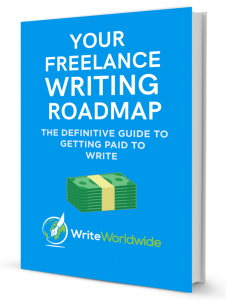A professional writing career – getting paid in exchange for your words – is the ultimate goal for any freelance writer.
But getting to that place isn’t easy.
Today, connections are made in the same way information is shared – instantly – and this has changed everything, including the way our brains work.
It turns out that it’s more convenient to stay in a destructive old habit than it is to form a healthy one that would help us progress.
We’re creatures of habit in every area of our lives, and we naturally gravitate towards routines that feel familiar to us.
Work itself is a great example.
The majority of people have a work life that revolves around the habit and routine of the ‘9 to 5’ – you get up, you go somewhere, you do a job, you come home and wait for your payslip.
Working for yourself as a freelance writer is different, and so are the habits and routines you can get into doing it.
Let’s examine a few really bad habits (all tried and tested by me) that lie in wait for anyone considering a move into professional writing, and how to kill those habits before they kill your career.
Bad Habit #1: You use the Internet to procrastinate and your time management skills are terrible.
I know you’ve been here and got the T-shirt. And then taken a selfie with the T-shirt on and posted it to Instagram, Facebook and Twitter while you’re doing another Buzzfeed quiz to find out what kind of unicorn you are.
And what’s more distractingly satisfying that a Netflix marathon? Yeah, you’ll get back to that client prospect list after one more episode….
You see where I’m going with this. Procrastination + Internet = no freelance writing work, ever again.
How to Kill it:
Things like RescueTime and SelfControl are ideal for blocking out distractions and using your time effectively. For more on apps and extensions that can help you on your freelance writing journey, check out Richard’s post here.
Bad Habit #2: You don’t read or write enough to get better
There’s no getting around this one: if you want to be a successful writer of any kind, you need to read and write a lot. And that’s only half the story.
In the last few years, there’s been a spate of books and studies about the best way for humans to improve and enhance the skills they want to focus on. The general conclusion to this research suggests it’s not enough for us to simply practice – we need to practice on purpose in a specific way.
That means unless you put some effort into regularly prioritising reading and writing time, you’ll probably struggle to make the leap into well-paid, professional writing.
How to kill it:
Try some daily writing prompts, or make a commitment to supercharge your reading habits. Do it online or look for a local group that meets in the flesh. The point is to take action and develop strength in these important (and often overlooked) areas.
Bad Habit #3: You don’t hang out with other freelance writers and you can’t stay motivated
Working for yourself is hard, and can be isolating if you aren’t connected to other people in the same situation as you, pursuing the same goals and hitting the same roadblocks.
Self-motivation can also be difficult to come by if you’re working from home and aren’t yet feeling the pressure of deadlines and a packed work schedule – particularly if you’re just starting out.
Without certain structures in place to gradually escalate your professional writing career, the temptation to tell yourself “I’m just not cut out for this” will always be lurking.
How to kill it:
One of the simplest ways to kickstart your freelance writing success is to become part of a community of like-minded people. This will help you network, share information, get advice and help from others and build a positive work environment you can thrive in.
Richard has a great post that talks about how the benefits of becoming accountable have helped the WriteWorldwide team.
If you’re having trouble staying motivated, try some guided daily rituals or check out these actionable tips from Nick on how to adopt the right mindset for success.
Bad Habit #4: You don’t market yourself enough, so clients can’t find you.
This habit is a big problem for freelance writers who are just starting out, and often comes from a lack of confidence and the tendency to compare yourself to others rather than focussing on your own unique skills.
If you’ve said to yourself “But there are so many good freelance writers already, why would anyone who needs a writer want to hear from me?” I can tell you that you’re not alone.
I can also tell you that you’re completely wrong, and you’re looking at the whole thing upside down.
How to kill it:
Let’s start with a simple fact you may not have considered: The Internet is really quite big. In fact, it’s absolutely massive. So you need to look at marketing as an essential tool to get seen and stay top of mind, rather than an action you should only do in proportion to how good you think you are.
You won’t start out as the best freelance writer on the planet, but you’ll never move up the ladder and get progressively better if you don’t market yourself forcefully and effectively.
You could be the best writer since this guy, but if you’re hiding in a corner of the web, who’s going to see you? Nobody. The platform is just too large, and you’ll fall off and never be heard of – or found – by potential clients who need your talents and skills.
Luckily, it’s easy to learn the basics of how to market yourself on the Internet, because the Internet loves marketing. But you also need to do it a lot.
If you’re struggling with this, don’t worry – WriteWorldwide has a special marketing challenge coming up that’s geared directly towards taking massive action in this critical area of your professional writing career.
Look out for details soon!
In the meantime take a look at Richard’s post on productivity tools that are sure to keep you on track.
What bad habits are you struggling with, and have you found inventive ways to overcome them? Let us know in the comments.




Hey Ciaran! Appreciate you including me in your article : ) For #3, I recommend Meetup.com, local conferences and most of all, co-working spaces (hotdesking). Just make sure you aren’t the smartest in the room, and you’ll be a-okay.
Thanks for the tips, Adam! Really enjoyed your post, happy to include it here. Cheers 🙂